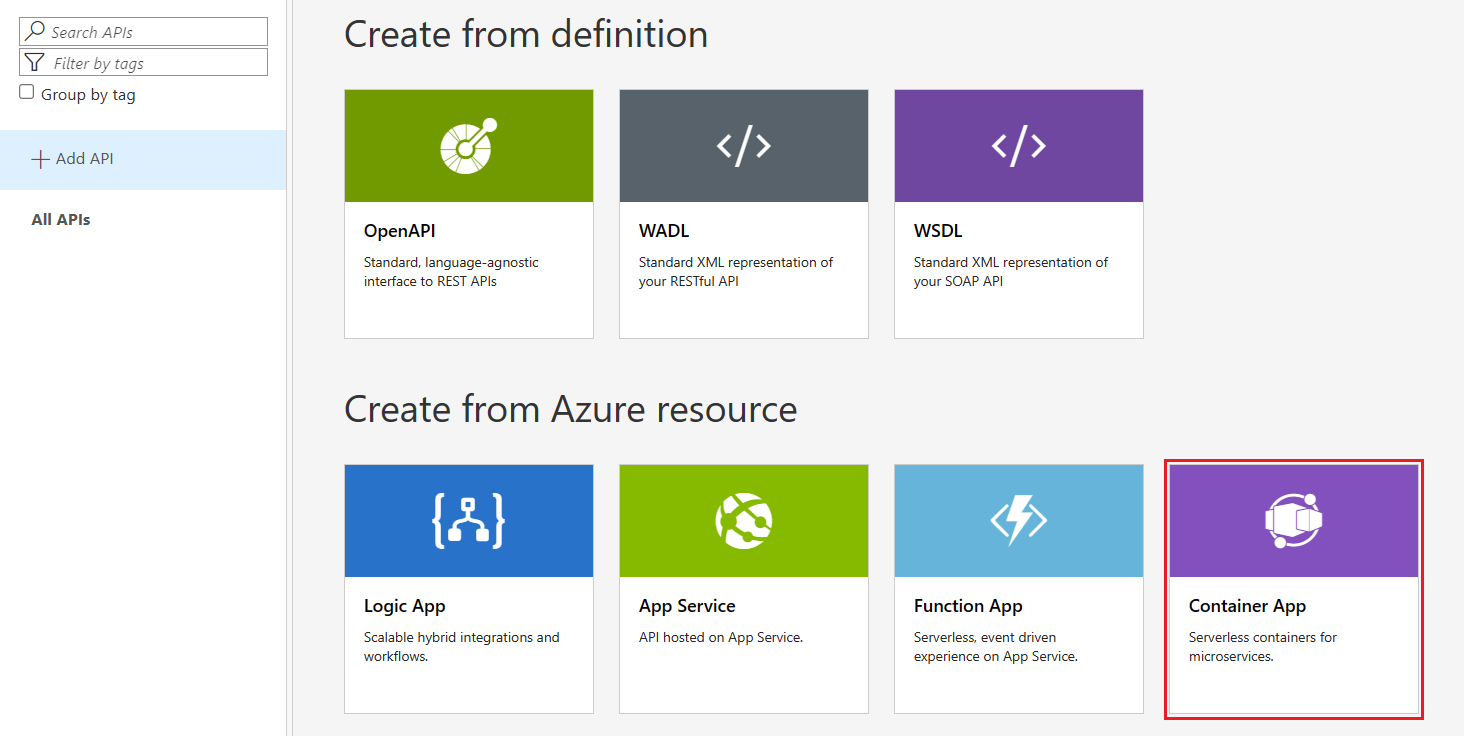A regular Azure API Management service update was started on October 25, 2021, and included the following new features, bug fixes, and other improvements. It may take several weeks for your API Management service to receive the update.
Featured
- Public preview: GraphQL passthrough support in Azure API Management.
- General availability: Native support for WebSocket APIs.
- General availability: API Management and Event Grid Integration.
New
- You can now import Azure Container App as an API in API Management.

- API Management now supports managed identity authentication for communication with Application Insights. To configure it, specify the
identityClientIdkey in theproperties.credentialsproperty of theLoggerobject and set the value to:systemAssignedfor a system-assigned identity, or- ID of a user-assigned identity.
- Support for the multi-dimensional
Requestmetric in Azure Monitor is now generally available.
Fixed
- We fixed an issue, where the
Portal RevisionAPI marked all new developer portal revisions as current, regardless of theisCurrentparameter's value. - We fixed an issue, where the
specified-parameter-actionattribute of thevalidate-parameterspolicy was ignored. - Scale-outs of API Management services in the single-tenant v2 (
stv2) infrastructure no longer affect existing service capacity. Previously, each scale-out forced a restart of the existing nodes. This optimization has already been implemented in services in thestv1infrastructure and those services aren't affected by the change. - All header's schema properties are now preserved when importing an OpenAPI v3 document. Schemas for headers are supported in management API versions
2021-01-01-previewor later. - Properties with
format: datein OpenAPI documents are no longer converted to a date-time object. - Unknown countries are now reported as
Unknownin the built-in API reports (Analytics tab in the Azure portal). - WebSocket APIs now support backend service URI with the WebSocket schema and a custom port.
Information
- Services deployed in a virtual network with forced tunneling need to allow an additional dependency for Windows activations. Although this requirement wasn't documented, it is not introduced by the current release.